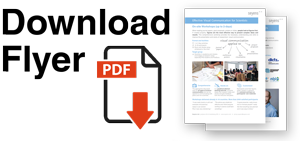What is Effective Communication?
Communication, spontaneous and strategic
Communication is all around us. It is the process of exchanging information or ideas between individuals or groups. The purpose of communication is to share information and coordinate actions in order to achieve a common goal or understanding. But what contributes to making the communication effective? Is there any way for us to become more effective communicators?
We communicate daily when we interact with other people. Most of that communication is spontaneous. We greet our neighbors, send text messages to our friends, and chat with our family over a meal or drinks; we nurture relationships and enjoy ourselves, but beyond that, there is nothing we really want to achieve. Communication is the end in itself and effective as is.
But every once in a while, there is a situation where spontaneous communication doesn’t suffice. Maybe we need to deliver a talk in front of our class or coworkers. Maybe we are presenting our innovation to investors, or have to present our scientific findings at a conference. In such situations we need to invoke strategic communication where communication is not the end in itself but used as a means to an end. And to increase the chances of your strategic communication being effective if you plan ahead instead of being spontaneous.
Make a plan!
Every important communication should be planned. You can try to wing it, however, your chance of success increases significantly if you create a plan. What should you plan for? I believe there are two important ingredients. The audience and the goal. As different audiences require different approaches you should clearly define both within the context of your communication.
The purpose of effective communication is to get your specific audience to the desired goal. The goal could be informing them or allowing them to understand a message, but also to persuade or convince them to take action. Your goal could also be to make them laugh, cry… but for most professional communication, this is generally not the case. If you manage to bring your specific audience to the desired goal, you can call that communication successful.

Example: two audiences, two goals
Imagine you are a climatologist trying to communicate your research results to two different audiences:
- your peer scientists
- policy makers
In the first case, your goal is to present your research to scientists who very well understand the science behind what you did. You want to inform and convince them with your supporting data. In the second case, you want to persuade them to take certain action which will protect the environment. They have only vague knowledge on the science behind what you did and are more interested in the significance and implications of what you discovered.
Should the communication in both cases be the same? Absolutely not. You will never be able to achieve both goals if you use the same method of communication. It is even more likely that you’ll fail in both cases. This is why it is crucial to understand who exactly your audience is and what your goals are before you start preparing your communication. Your communication will be successful if your audience reaches the goal you wanted.
Effective communication
At Seyens, we consider the communication to be effective if the audience reaches the goal intuitively, effortlessly. This means that when they are absorbing your communication, they don’t have to think about the method you are using, but only about the message.

How can that be achieved? Different methods of communication require different principles in order to make the method as transparent as possible. Some of the principles that can be applied to all methods are concepts from psychology, especially perception. At Seyens, we focus on everything that can improve the effectiveness of visual communication, which is what we teach scientists at our workshops.
When to make sure you communicate effectively?
Most of the communication we do in our everyday lives is quite successful. We know to modify our behavior, vary our method/approach if we start to see we aren’t getting our messages through. However, for the communication to be effective, more effort has to be invested first into acquiring the principles and later into preparing and delivering our messages each and every time.
It may not be efficient to plan and polish all your daily communication. However, you should think about the more important instances of communication you deal with in business and relationships. Who are the most important audiences and what are the goals you and they want to achieve? What can you learn about the audiences to understand them better? These are the questions you should be asking yourself if you want to communicate effectively … Especially if a lot is at stake.
[social_warfare]

Dr. Jernej Zupanc helps scientists communicate more effectively with his workshops on Visual Communication of Science.



James Nyirenda
February 18, 2017 (10:55 am)
Thanks for great information.
Lucas Burchard
March 27, 2017 (3:07 pm)
Thank u for a lot for skills u planted to society.
Vijaya bala
April 15, 2017 (11:10 am)
Thank u a lot it is informative and knowledgeable
sheen
June 14, 2017 (12:42 pm)
Thank you so much.
jane mambea
June 29, 2017 (9:07 am)
Very informative and educative indeed
Puni Henry
June 29, 2017 (12:31 pm)
very educative to the community around
usman
July 8, 2017 (2:26 pm)
Thanks seyens for pointing out the main points of an effective communication.
Akintunde Olukayode
September 24, 2021 (7:21 am)
Thanks for the educative information this will definitely makes writing manuscript very ease. I appreciate this.
lemuel emmy
October 17, 2017 (6:39 pm)
what are the barriers of effective communication
Awais Sandhu
November 30, 2017 (4:24 am)
there are total seventeen barriers in effective communication like language barrier, cultural barrier etc
chandan kumar jha
December 13, 2017 (1:06 pm)
if i have to communicate with a single person who is jennie in nature how should i communicate with him.?
abdullah
January 10, 2018 (4:31 am)
nice one
thisendi
January 14, 2018 (6:02 am)
advantages and disadvantages of effective communication?And that are they? Why is it important to the community?
seetsa
February 12, 2018 (7:45 am)
How does personality influence effective communication
Rana Odeima
June 15, 2019 (6:38 am)
Thank you.
This is a very simple and direct approach to illustrate successful communication. I wish we could get some case studies or games that help us explain the concept thoroughly to our students.
William
January 10, 2020 (1:04 pm)
Highly educational and well put, thank you
Chanda Neibar
March 16, 2020 (8:08 am)
Highly educative